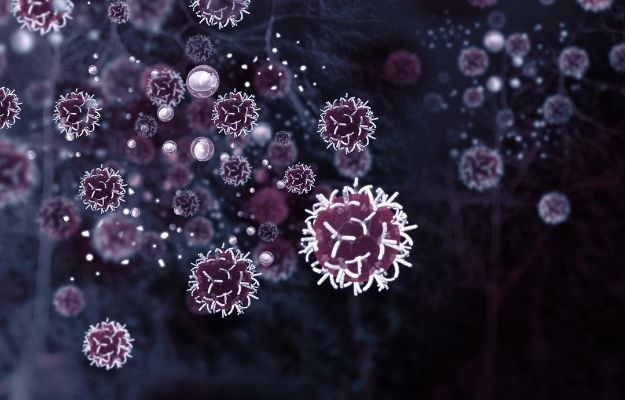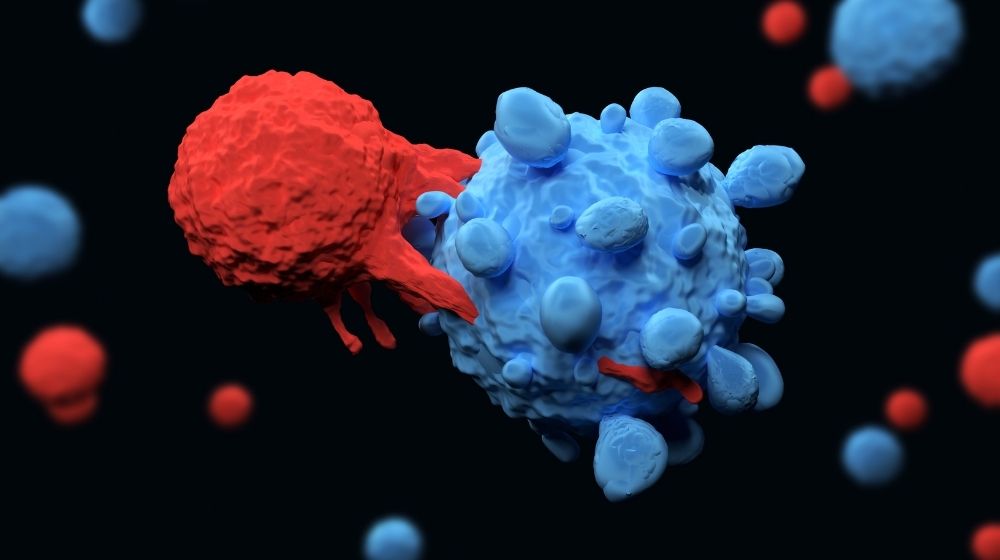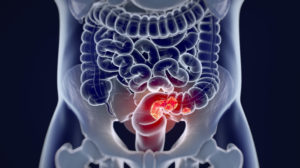Cancer therapies that target epigenetic repressors can mediate their effects by activating retroelements within the human genome.
Viral mimicry is the cancer cells’ ability to act as though they are infected. The immune system responds with an attack against cancer cells like it would an infection. In short, viral mimicry causes and directs an antiviral response against cancer cells.
Some cancer therapies induce viral mimicry. However, clinical trials show limited efficacy.
Read the original publication of this study here: Epigenetic therapy induces transcription of inverted SINEs and ADAR1 dependency
This study aimed to find targets that would synergize with the viral mimicry response, we sought to identify the immunogenic retroelements that are activated by epigenetic therapies.

Epigenetic therapy induces transcription of inverted SINEs and ADAR1 dependency
The ADAR1 enzyme targets and destabilizes inverted-repeat Alu double-stranded RNA (dsRNA), which inhibits activation of the MDA5 receptor.
Researchers found that ADAR1 establishes a negative-feedback loop, restricting the viral mimicry response to epigenetic therapy. In other words, suppressing ADAR1 enzyme made cancer cells more susceptible to novel drug therapies that cause viral mimicry.
Essentially, ADAR1 prevents cancer cells from triggering an immune system response.
The team identified SINEs (Short Interspersed Nuclear Elements) as the particular ancient repetitive DNA elements. These SINEs lie quietly in our genome, with little effect on the host.
However, cancer therapies that target epigenetic repressors can mediate antitumor outcomes. Epigenetic drugs activate these SINES to produce dsRNA. And the reactivated retroelements can ultimately initiate an innate and adaptive immune response to kill cancer cells, similar to how it fights infection.
The studies also demonstrated that removing ADAR1 makes cancer cells more sensitive to the epigenetic drug-induced antiviral response.
ADAR1 activity is enzymatic. Therefore, the findings provide a new direction for drug development efforts, and novel cancer therapies may exploit these embedded defenses in our genome. So far, the research suggests combining epigenetic therapies with ADAR1 inhibitors as a promising cancer treatment strategy.
Takeaways:
- Suppressing ADAR1 enzyme made cancer cells more susceptible to novel drug therapies that cause viral mimicry.
- The discovery of ADAR1 reveals how some cancer cells defend against viral mimicry and shield themselves from an immune system response.
- The findings suggest that combining epigenetic therapies with ADAR1 inhibitors represents a promising strategy for cancer treatment.
You can read the original publication of this study here: Epigenetic therapy induces transcription of inverted SINEs and ADAR1 dependency





